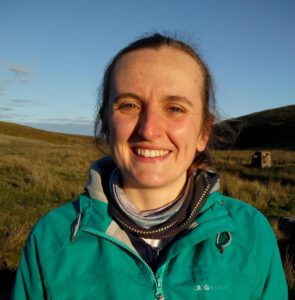Alumni Profile – Tilly

A PhD student spends three or four years completing a research degree in their chosen subject: in my case, maths. This time is spent working on a project with the help of their supervisor(s). Contrary to an undergraduate, a PhD student works on questions that nobody has answered before!
My project is focussed on mathematically modelling the surface melting on ice sheets (Greenland and Antarctica) to gain a better understanding of the contribution this has to sea level rise.
Towards the end of my undergraduate degree, I felt like there was still so much more to learn. I also wanted to use my mathematical skills to do something I felt was worthwhile. In my final year, I took a course called Mathematical Geoscience. This was about using maths to model the climate, rivers and ice, which I found extremely interesting. The lecturer of that course is now my supervisor.
I spend most of my day in my home office (bedroom) reading papers and writing (and debugging) code. I am often stuck! I also attend online seminars, and meet with my supervisor once a week. During term time, I do some undergraduate teaching too, which involves marking lots of work, but is still very enjoyable.
The main skills needed to be a PhD student are organisation and perseverance. I spend a lot of time being stuck, and it can often take weeks to solve what I initially thought was a small problem. It’s important to have the motivation to keep going when it feels like nothing is working. The small breakthroughs make it worth it!
The highlight so far has been our weekly ‘icy maths’ journal club. A small group of us who work on ice related problems get together (online) to discuss icy papers and have a chat. It’s great to feel part of the research community, especially when so much of my work is very independent.
The next step is a long way off! I’ve still got three years of my PhD to go, so I’m not thinking beyond that yet.
My main advice would be to only do a PhD if you’re really interested in your subject; 3-4 years is a long time to work on one topic. This doesn’t mean you need to know exactly what project you want to do before you start – I have only just started to figure that out a year in! Having a supervisor who you get on with, and think you can work well with, is also important. They will be a big part of your PhD.
